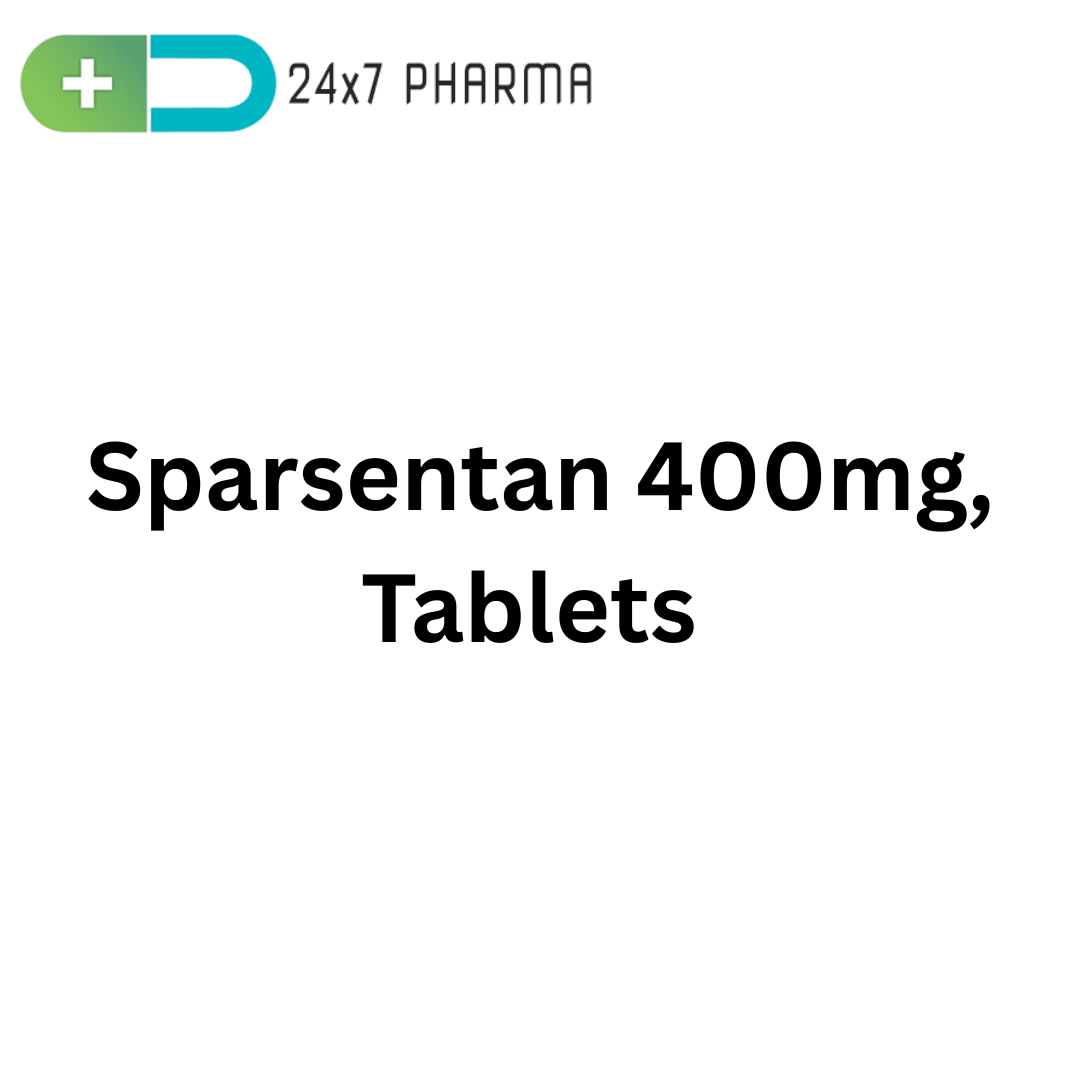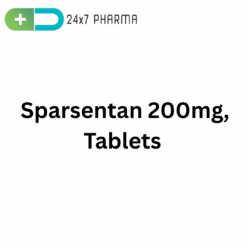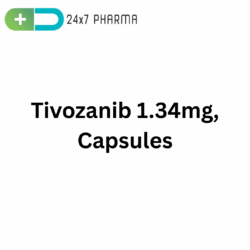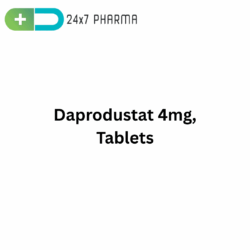LuciSeta 400mg, Sparsentan Tablets
LuciSeta 400mg contains Sparsentan, a novel therapeutic agent developed for treating rare kidney disorders that cause proteinuria and progressive kidney damage. As an advanced dual endothelin and angiotensin receptor antagonist (DEARA), Sparsentan provides a targeted approach to conditions like focal segmental glomerulosclerosis (FSGS) and IgA nephropathy, which previously had limited treatment options.
What is LuciSeta 400mg?
LuciSeta 400mg is a prescription oral medication that contains Sparsentan, a selective dual antagonist of endothelin type A (ETA) receptors and angiotensin II type 1 (AT1) receptors. It is designed to treat glomerular diseases where excess protein leaks into the urine due to damaged kidney filtration units. Sparsentan offers a promising therapeutic strategy to preserve kidney function and delay progression to end-stage renal disease (ESRD).
How Does Sparsentan Work?
Sparsentan works by blocking both ETA receptors and AT1 receptors, which play major roles in the progression of glomerular diseases:
- Endothelin Receptor Blockade: Vasoconstriction, inflammation, and fibrosis are all influenced by ETA receptors. Sparsentan lowers fibrosis and intraglomerular pressure by blocking these receptors.
- Angiotensin II Receptor Blockade: AT1 receptors are involved in hypertension and proteinuria. Blocking them lowers blood pressure and reduces the damage to glomeruli.
This dual inhibition results in a synergistic reduction of proteinuria, making Sparsentan more effective than traditional single-pathway inhibitors like ACE inhibitors or ARBs alone.
How to Use / Indications
LuciSeta 400mg is indicated for the treatment of:
- A rare type of kidney disease called focal segmental glomerulosclerosis (FSGS) causes scarring to grow in certain glomerular segments.
- IgA Nephropathy (IgAN): A chronic kidney disorder characterized by deposits of the IgA antibody in the glomeruli.
- It is primarily used in patients who are at risk of progressive kidney decline due to persistent proteinuria despite standard care.
How to Take / Dosage
Standard dosage of LuciSeta 400mg (Sparsentan):
- The treatment is initiated under physician supervision, especially due to its effects on blood pressure and renal function.
- Starting Dose: Typically begins at 400 mg orally once daily.
- Titration: Dose may be increased based on response and tolerance, under medical supervision.
Administration Tips:
- Take with or without food.
- Swallow whole with water.
- Take at the same time each day to maintain consistent levels.
Other Dosage Forms / Strengths
While LuciSeta 400mg is a common starting dose, Sparsentan may also be available in:
- Sparsentan 400mg tablets for patients who require higher doses.
- Lower strengths (100mg) may be used for titration or patients with low body weight or hepatic/renal considerations.
Side Effects
Like all medications, LuciSeta (Sparsentan) may cause side effects. Common and serious side effects include:
Common Side Effects:
- Hypotension (low blood pressure)
- Dizziness or light-headedness
- Edema (fluid retention)
- Nausea or gastrointestinal discomfort
- Headache
Serious Side Effects:
- Liver enzyme elevations (monitoring required)
- Hyperkalemia (elevated potassium levels)
- Decline in kidney function
- Anemia or fatigue
- Teratogenic consequences (not to be used during pregnancy; damaging to fetus)
- Patients should be closely monitored for kidney function, liver enzymes, and electrolytes during therapy.
Storage
- Temperature: Store at room temperature (15°C to 30°C).
- Protection: Keep away from moisture, heat, and direct sunlight.
- Container: Keep in original packaging or a tightly closed container.
- Keep out of reach of children.
Benefits
- Dual Mechanism: Uniquely blocks both ETA and AT1 receptors for a more effective reduction in proteinuria.
- Slows Progression: Helps delay progression of chronic kidney diseases toward ESRD.
- Improved Outcomes: Demonstrates superior efficacy compared to traditional RAAS inhibitors in reducing protein leakage.
- Better Quality of Life: By preserving kidney function, it supports overall patient well-being.
Prescription
LuciSeta 400mg (Sparsentan) is a prescription drug that needs to be taken with:
- a verified diagnosis of IgA nephropathy or FSGS.
- Physician monitoring due to potential side effects.
- Baseline and regular monitoring of kidney function, liver enzymes, and blood pressure.
- Pregnant women must avoid use due to teratogenicity. There may be a need for a Risk Evaluation and Mitigation Strategy (REMS).
Interactions
Potential Drug Interactions:
- ARBs or ACE inhibitors: May raise the risk of hyperkalemia and hypotension.
- When taken together, NSAIDs may raise the risk of renal injury.
- Potassium-sparing diuretics: Risk of elevated potassium.
- CYP450 interactions: Caution with strong CYP3A inhibitors/inducers.
- Avoid combining with other drugs that lower blood pressure or impact renal function without medical supervision.
FAQs
What is LuciSeta 400mg use for?
It treats proteinuric kidney diseases like FSGS and IgA nephropathy to reduce protein loss and protect kidney function.
Can Sparsentan cure kidney disease?
No, it doesn’t cure but slows the progression of disease and reduces complications.
How long should I take LuciSeta?
A: It is typically use long-term under supervision to control proteinuria and disease progression.
Conclusion
LuciSeta 400mg (Sparsentan) represents a major advancement in the treatment of rare glomerular diseases like FSGS and IgA nephropathy. Its unique dual-action mechanism provides better control of proteinuria and helps delay progression to kidney failure. Although it comes with potential side effects and requires close medical supervision, its benefits in preserving renal function make it a valuable option in nephrology care. With proper usage and monitoring, Sparsentan can significantly improve patient outcomes in chronic kidney disease management.








